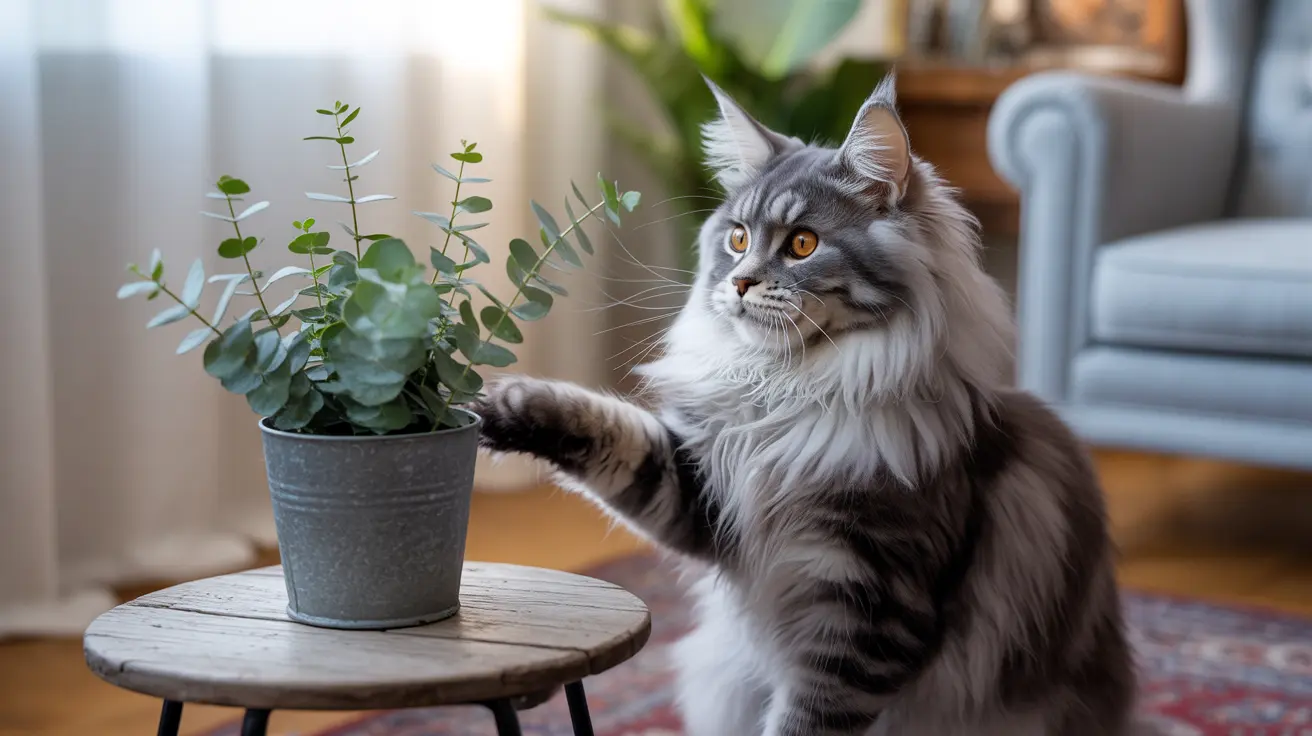If you enjoy the fresh, invigorating scent of eucalyptus, you might wonder about its safety around your feline companions. The short answer is no - eucalyptus smell is not safe for cats. In fact, this popular plant and its derivatives can pose serious health risks to our feline friends, requiring careful consideration from pet owners.
Understanding the relationship between cats and eucalyptus is crucial for maintaining a safe home environment. Let's explore why this aromatic plant can be dangerous and what precautions you should take to protect your cat.
Why Eucalyptus is Dangerous for Cats
Cats are uniquely vulnerable to eucalyptus due to their specialized biology. Unlike humans and many other animals, cats lack a specific liver enzyme called glucuronyl transferase, which is necessary for breaking down certain plant compounds. This deficiency makes them especially susceptible to eucalyptus toxicity.
The primary culprit in eucalyptus is eucalyptol (also known as cineole), a compound that can be harmful to cats even in small amounts. This substance can affect cats through multiple exposure routes, including inhalation, ingestion, and skin contact.
Forms of Eucalyptus and Their Risks
Essential Oils: The Most Dangerous Form
Eucalyptus essential oils present the highest risk to cats due to their concentrated nature. Even small amounts diffused into the air can cause serious health issues. These oils can settle on your cat's fur, leading to accidental ingestion during grooming.
Fresh and Dried Plant Material
While less concentrated than oils, fresh or dried eucalyptus leaves and stems still contain toxic compounds. Even if your cat doesn't directly consume the plant, proximity to these materials can cause adverse reactions.
Signs of Eucalyptus Exposure in Cats
Watch for these warning signs that may indicate your cat has been exposed to eucalyptus:
- Excessive drooling or lip-licking
- Vomiting or diarrhea
- Weakness or lethargy
- Difficulty breathing
- Unsteady walking or tremors
- Depression or behavioral changes
- Decreased heart rate
- Low body temperature
Creating a Safe Environment for Your Cat
To protect your cat from eucalyptus exposure, implement these safety measures:
- Remove all eucalyptus plants from your home and garden
- Avoid using essential oil diffusers containing eucalyptus
- Check ingredient labels on cleaning products and air fresheners
- Store any eucalyptus-containing products in sealed containers out of reach
- Consider pet-safe alternatives for home fragrance
Emergency Response to Eucalyptus Exposure
If you suspect your cat has been exposed to eucalyptus, take immediate action:
- Remove your cat from the area of exposure
- Contact your veterinarian or pet poison control
- Monitor your cat's symptoms
- Bring the product in question to the vet if medical attention is needed
Frequently Asked Questions
Is the smell of eucalyptus safe for cats to inhale or be around?
No, eucalyptus smell is not safe for cats to inhale. Cats have extremely sensitive respiratory systems, and the compounds in eucalyptus can cause both immediate and long-term health issues.
What symptoms indicate eucalyptus poisoning in cats from smelling or contact?
Key symptoms include drooling, vomiting, weakness, respiratory distress, tremors, and decreased body temperature. Any of these signs warrant immediate veterinary attention.
Are eucalyptus essential oils more dangerous to cats than fresh or dried leaves?
Yes, essential oils are significantly more dangerous due to their concentrated nature. They contain higher levels of toxic compounds and can cause more severe reactions more quickly.
How can I safely use eucalyptus products at home if I have cats?
The safest approach is to completely avoid using eucalyptus products in homes with cats. If you must use them, do so in a sealed room that your cat never enters, with proper ventilation.
What should I do if my cat breathes in eucalyptus oil vapors or licks eucalyptus leaves?
Contact your veterinarian or animal poison control immediately. Remove your cat from the exposure source and monitor their symptoms while awaiting professional guidance.
Remember, when it comes to eucalyptus and cats, it's always better to err on the side of caution. Creating a safe, toxin-free environment is an essential part of responsible pet ownership.






